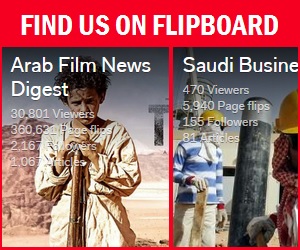Facebook bigger than newspapers? So what?
Does this mean the death of newspapers? Not quite…
The seventeen countries we included in the Middle East and Northern Africa Facebook Demographics study have widely varied news media: some, like the UAE, have strong English news components while others, like North Africa, have strong French language daily and weekly news media. When you look at the penetration of newspapers per capita in the region there are some odd anomalies that show some very different reading habits – almost a million newspapers are sold in the UAE to a population of some 5 million people, while Saudi Arabia consumes just under 1.5 million daily newspapers with a population of 28 million.
But one thing stood out for us when we looked at regional newspaper distribution with our Facebook survey in mind: today, more people are on Facebook across the region than buy newspapers.
So what?
So what? They’re both totally different media, aren’t they? We don’t get pages and pages of news from Facebook and newspapers don’t tell us what our friends are thinking and doing.
Well, yes. But consider this. If I, as an advertiser, marketer or professional communicator, want to reach a regional audience, instantly and with guaranteed reach across the MENA region – can I do that using newspapers? Perhaps yes, if I was prepared to advertise in, and try to solicit coverage in, 144 Arabic newspaper, 29 English newspapers and something like 25 French ones. You also have the additional problem of selecting consumers. If I want to advertise to, or promote to, housewives in their 30s with two kids and good household incomes, why would I want to talk to millions of newspaper readers who don’t fit that demographic?
Of course, online advertising and promotion can be much more targeted than that – using content to attract consumers (the right content, of course, attracting the right consumer) and using context to ensure that I put my message in front of the right people at the right time, I can use a regional platform that has the punch of every single newspaper in the region, the ability to target within that audience. Let’s not forget, with online advertising I ideally only pay for results – it’s pay per click. I also would pay to generate content that attracts my target audience and I would have to fund the time my staff give to interacting with consumers. That is likely to be a tiny fraction of the cost of advertising in over 200 newspapers.
But Facebook isn’t about news, is it?
But the comparison doesn’t work because Facebook isn’t about news, surely? Well, that’s a great point. But we can’t say where the future’s taking us. Facebook is drawing in new features, the latest set of which (the ‘like’ button and its kin) bring powerfully Twitter-like features to Facebook, allowing people to ‘feed’ content through Facebook. This adds the powerful ‘discovery’ aspect of Internet usage to Facebook – people can share content and there’s every possibility that stronger offerings based around content sharing using Facebook as a platform will come in the future. But by that time, the landgrab will be over – and the newspapers will still be wondering what hit them and where it came from.
It’s also worth considering that Facebook is just one of a number of online platforms that are coming together to provide powerful information resources. We Google when we want to find information, use Twitter (and, increasingly Facebook), Digg or other tools to ‘discover’ information – either links to interesting stories our friends share or raw news being Tweeted and Twitpicced, posted up on Youtube or hosted on Flickr or Panoramio by eyewitnesses and we use RSS feeders to keep in touch with the blogs, websites and other news resources we’re interested in.
In this environment, we’re creating our own news feeds and resources. Our own newspapers – we no longer need an editor to serve up a dish of the news and content that will suit a median of a readership of thousands of ‘averaged’ readers. In the brave new world, each reader selects the information sources he or she is interested in rather than scanning the headlines of a newspaper for the stories that interest them.
In short, the strong adoption of online media in the Middle East is starting to build a compelling case for money to shift from print to online properties.
And that’s why comparing Facebook to print newspaper sales makes perfect sense to us.
– – – –
You can find Spot On PR on Facebook here: http://www.facebook.com/spotonpr
Download the press release (English, Word doc)
Download the press release (Arabic, Word doc)
Want to read more?
You can read our original blog post about May 2010′s MENA Facebook Demographics and download the full report here:
Tags: Algeria, Arab, Arab World, Bahrain, Carrington Malin, Egypt, Facebook, Internet, Iraq, Jordan, Kuwait, Lebanon, Libya, marketing social networking, Maroc, MENA, Middle east, Morocco, North Africa, Oman, online, Palestine, Qatar, Saudi, Saudi Arabia, social media, Syria, Tunisia, UAE, United Arab Emirates, Yemen


